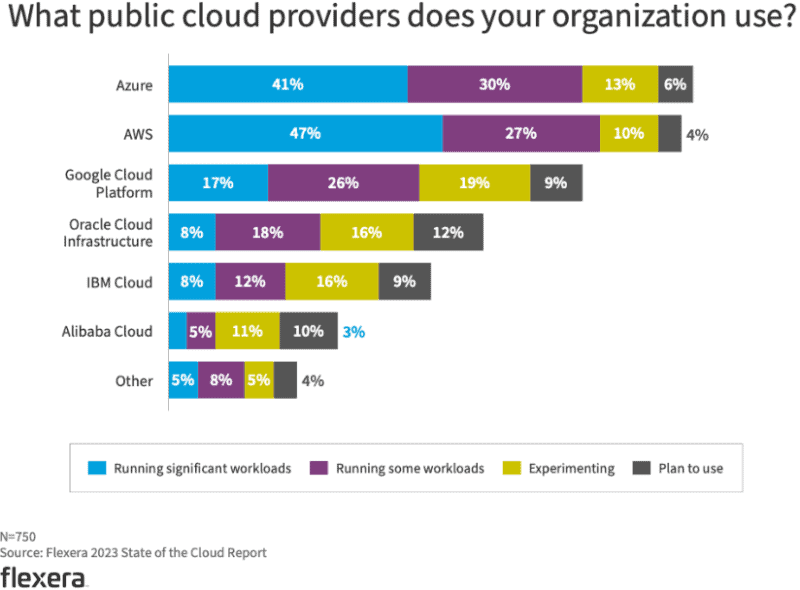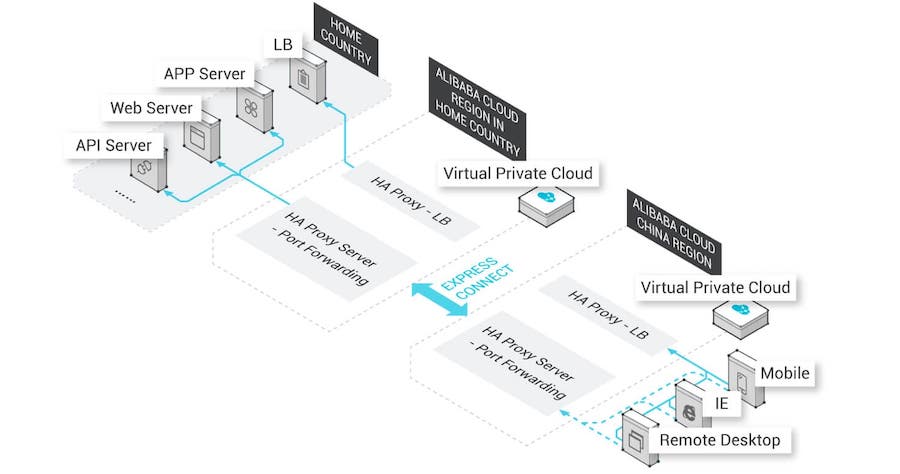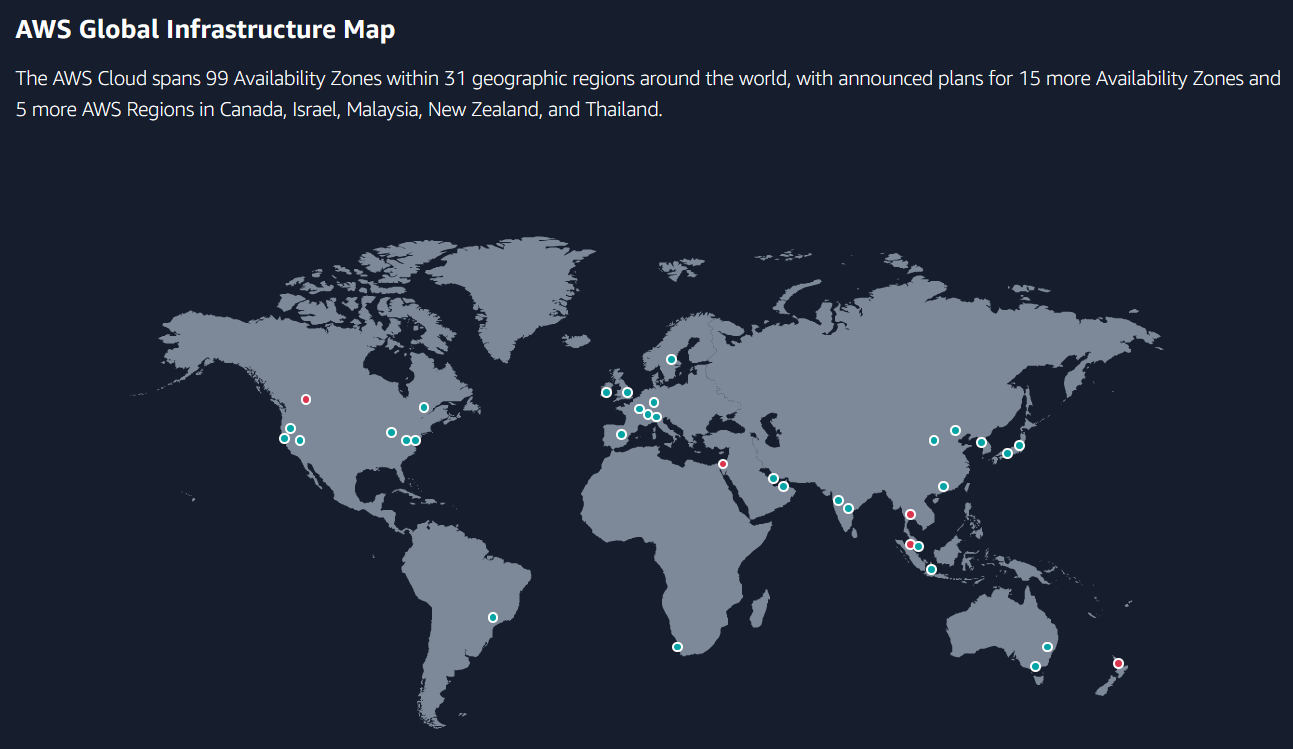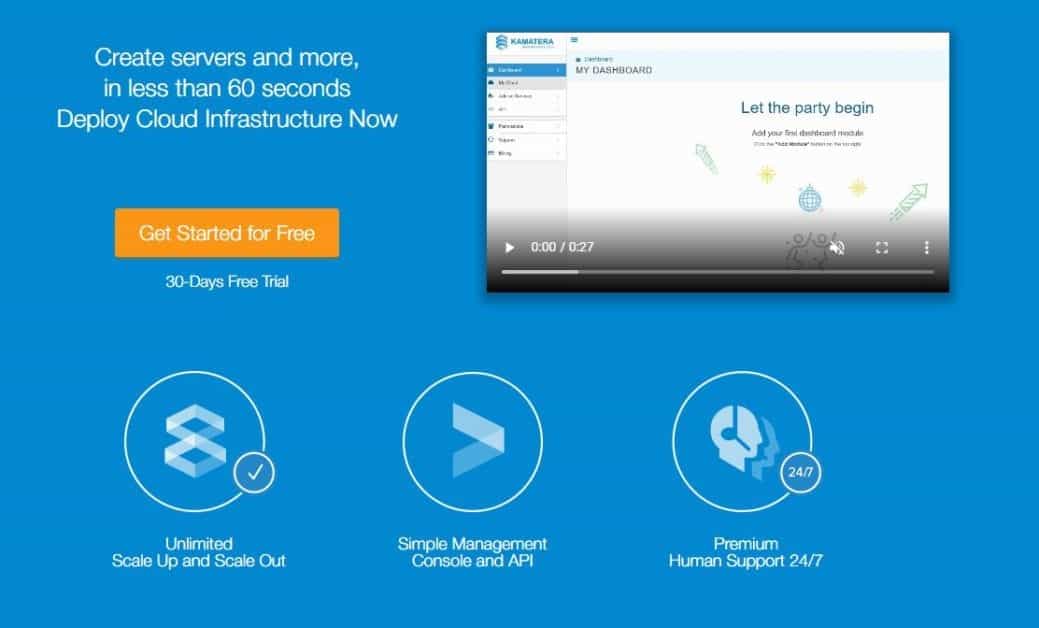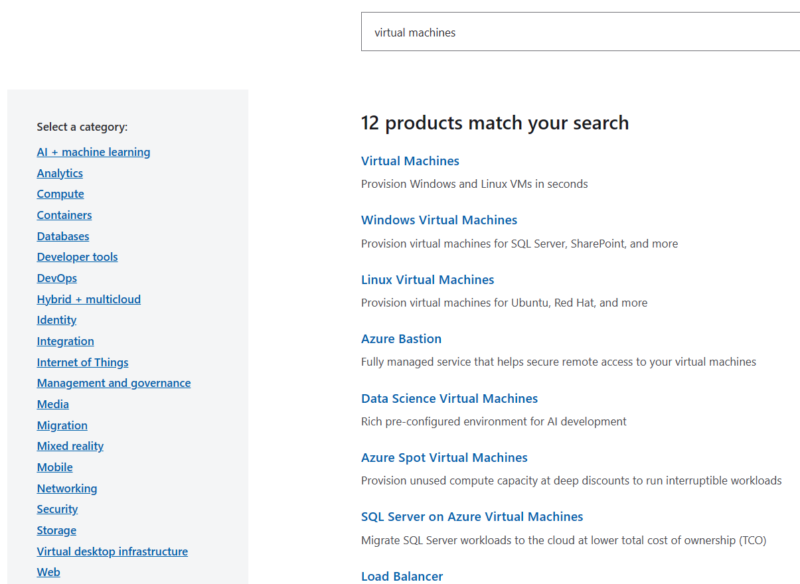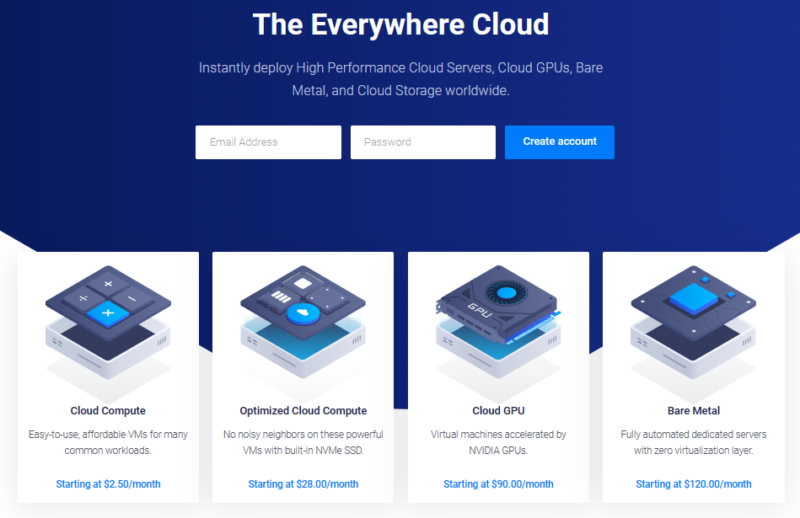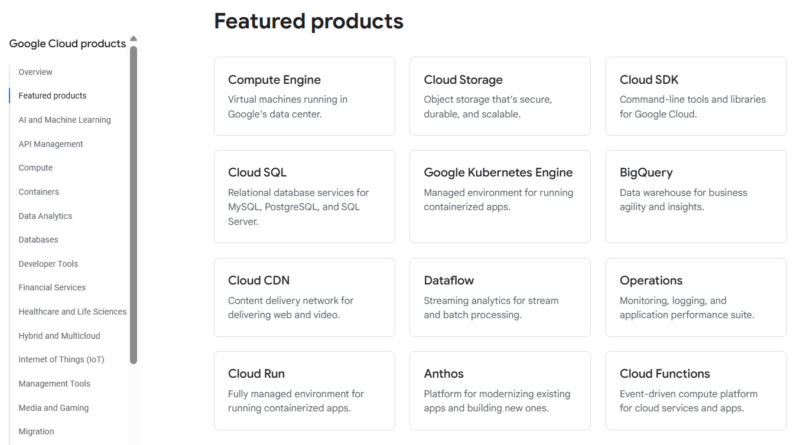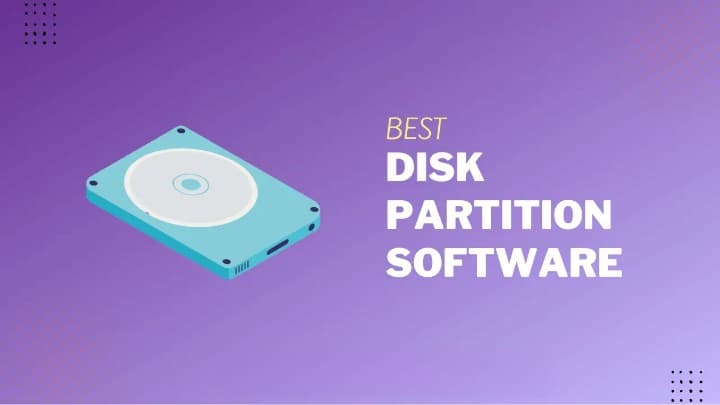
The cloud computing market is expanding faster than ever and will continue to do so for a long time.
While there are many cloud hosting companies, very few offer a variety of hosting products, ranging from basic static websites to sophisticated machine learning apps.
According to Flexera, Azure and AWS (Amazon Web Service) are the industry leaders.
The big tech companies are obviously doing very well, but there are other up-and-comers. While the number of cloud hosting companies is certainly in the hundreds, I will focus on a few of the top IaaS (infrastructure-as-a-service) Cloud Hosting Websites;
1) Alibaba Cloud
The first on the list of Cloud Hosting Websites is, Alibaba Cloud is your entry point to the Chinese market if you can’t ignore it.
With so many products, you can consider hosting virtually everything in China to provide the best experience for your customers.
Data center sites in China include:
- Qingdao
- Beijing
- Zhangjiakou
- Hohhot
- Ulanqab
- Hangzhou
- Shanghai
- Nanjing
- Shenzhen
- Heyuan
- Guangzhou
- Chengdu
- Fuzhou
Apart from this, it has footprints in 14 more foreign countries.
If you don’t have any offices in China, use this simple architecture to enter the Chinese market.
In addition, Alibaba Cloud provides ICP support, which is quite helpful if you don’t want to deal with complicated ICP licensing procedures and requirements.
Finally, for new subscriptions, Alibaba Cloud is offering more than fifty offers totaling up to $8,500, covering its wide range of cloud products.
2) UpCloud
UpCloud is a developer-focused platform designed to simplify DevOps. It is a specialized platform that allows you to build infrastructure with code.
It works with most infrastructure as code (IaC) frameworks, including LibCloud, Terraform, Ansible, and Packer. What sets it apart is that it also offers API client libraries in several widely used languages.
Other notable aspects include:
- MaxIOPS storage guarantees better performance.
- Custom OS images to adhere to company security policies
- Robust API for complete automation
- Private networking of their data centers
Is it necessary to build a private cloud? Yes, you are able to use their data centers for your actual servers. Ideal for developing a platform for hybrid clouds.
3) Linode (Akamai)
A popular alternative to DigitalOcean, Linode (now acquired by Akamai) is ideal for hosting online applications, from e-commerce to personal blogs.
It handles all the details, including DNS setup, load balancing, auto-scaling, and cloud migration, all with predictable costs.
- Linux is known for its core features, such as:
- Round-the-clock outstanding assistance
- Big data analytics and machine learning workloads are well suited for Nano computers, which are ideal for small-scale web apps or object storage that is compatible with S3.
- Eleven data centers around the world provide exceptional deployment flexibility and the ability to comply with national regulations.
- One-click programs for Gitlab, WordPress, and Drupal
4) Brightbox
With a 100% UK-hosted solution, Brightbox is an ideal option for the European market.
From a technical perspective, Brightbox offers enterprise-class capabilities, including fully private networking, PXE bootable hardware, and the flexibility to work with almost any operating system. It also offers a very high level of security.
This ensures that services are properly supported by the necessary back-end services, even with its simplicity and small service catalog. Along with each of its products, it offers some special services.
Cloud Servers
Like other suppliers, Brightbox offers a choice of Cloud VMs. However, it has certain features that make it a better option.
- Ability to create custom image snapshots for virtual machines that resemble an Amazon Machine Picture or Azure Machine Image.
- Cloud IP support makes it easy to change servers without losing your IP address.
- A completely private server network to prevent spoofing and eavesdropping
Cloud Storage
These days, object storage is growing in popularity as more and more businesses move their infrastructure to the cloud. However, the migration of data and subsequent maintenance of its consistency is one of the biggest hurdles for enterprises to move to the cloud. Brightbox features listed below make this easy:
- Manually importing data from a SATA, USB, or other comparable storage device
- Storage that heals itself with built-in redundancy.
- Because OpenSwift is based on standard storage, connecting to storage is easy.
You can also have auto-scalable cloud databases and load balancers to distribute the load between multiple servers using Brightbox.
5) OVHCloud
OVHCloud’s public and private cloud services can meet a wide range of individual and commercial use cases.
These include load balancers, databases, VPS and email, dedicated servers, cloud storage and backup, network security, containers, etc.
They currently operate 30 data centers in Europe, North America, Australia and Singapore.
In addition, OVHCloud offers new customers a $200 credit for free trial use of its public cloud services.
6) IONOS
With more than 8 million clients, IONOS offers a wide range of cloud services.
- Web-hosting and eCommerce
- Backup and storage
- Load balancing
- Network security
- Managed Kubernetes
- Databases
- Dedicated servers and VPS
From my own observation, IONOS’s offerings effectively guided both individual and corporate clients to the right items. Compared to the typical user experience of industry-leading cloud providers such as AWS or Google Cloud, it’s much less complicated.
In addition, IONOS has an impressive feature list that includes consulting, pay-as-you-go pricing, redundant servers, round-the-clock expert support, and more.
Finally, depending on the product, IONOS offers new customers risk-free trials with a money-back guarantee or complimentary credit.
7) AWS
Introducing AWS is unnecessary. However, in case you didn’t know, it was introduced in 2006 and currently operates in 31 different global locations. It offers a large selection of goods to satisfy every requirement of the business.
Virtually any application can be hosted, including virtual private clouds and networks such as load balancing, DNS, and firewalls.
You can click this link to see the complete list of AWS-provided items.
Paying for the services you use and the fact that AWS offers a free tier for some of its popular services are two of the platform’s biggest features. Thus, if you want to try AWS, take advantage of a free account to get a feel for the system.
Startups can also take advantage of AWS Activate, which allows them to apply for $100,000 worth of free AWS credits. This free package also includes expert support in understanding, developing and implementing a cloud solution for your use case.
If you’re looking for direction on where to start, I recommend enrolling in this online course to review the AWS cloud.
8) DigitalOcean
A favorite cloud hosting Website for developers, DigitalOcean offers an exceptional platform experience while not being as large as AWS or GCP. A big advantage is pricing: VMs are available for as little as $4 a month.
Is it even conceivable?
They offer the following cloud services:
- Virtual machines
- App development platform
- Managed Kubernetes
- Managed Databases
- Cloud storage
- Load balancers
- Firewalls, etc.
There are 14 data centers worldwide where DigitalOcean is accessible, including four legacy data centers that are fully booked and exclusive to their existing customers.
Through its Hatch program, startups can get infrastructure credits for a whole year.
For those who aren’t tech-savvy, DigitalOcean’s managed database services, including MongoDB, MySQL, Redis, and PostgreSQL, are the most rewarding features. Finally, all new customers are offered a risk-free trial with $200 worth of free credits.
DigitalOcean just bought Cloudways to provide managed hosting for a variety of apps, including WordPress, WooCommerce, Magento, and PHP.
9) Kamatera
A number of cloud services, including firewalls, servers, storage, load balancing, and block storage, are provided by Kamatera.
The platform is easy to use and provides a host of options for deploying popular applications and services, such as:
- WordPress
- Docker
- pfSense
- NFS
- MongoDB
- HAProxy
- Mattermost
- Rancher
- Elasticsearch
- OpenVPN
Despite having over 20 years of cloud knowledge, Kamatera is a young and developing participant in global marketplaces, with 18 data centers located across four continents.
The main reasons behind Kamatera’s unexpected rise in popularity are its specific value-adds: affordable virtual machines (VMs) with monthly starting prices as low as $4, incredible scalability, flexibility in server configuration and payment options, Excellent performance, and most importantly. Customized and tailored cloud services with round-the-clock support.
10) Microsoft Azure
Originally released as Windows Azure in 2010, Microsoft Azure underwent a name change to Microsoft Azure in 2014. It sells a variety of goods, including its own software, which includes Exchange Server, MS SQL, IIS, and other programs.
The full list of items is available here.
Azure truly has it all: database, AI, IoT, computation, security, analytics, and more.
Additionally, Microsoft Azure is one of the few foreign companies with servers located in Mainland China. If you’re a startup, joining their BizSpark program can get you up to $150,000 in free Azure credits.
11) Vultr
The scalability and reliability of cloud hosting make it an attractive option. On the other hand, running an Azure or AWS platform can be a daunting task.
Vultr makes it easy and offers cloud hosting at incredibly low prices, with monthly plans starting at just $2.50.
Most of the features you’d expect are available with Vultr, including fast SSD storage, auto-scaling, resizing, and OS selection. A few are notable, including
- Select from thirty worldwide locations
- Cloud server redundancy for superior uptime
- Many options for computing based on specific requirements
- To expand storage, use dedicated SSD block storage.
- APIs for creating or administering a unique hosting platform on top of Vultr
- Plan on taking complete VM snapshots and backups automatically.
- Protection from DDoS and firewalls
- High-availability and scalable load balancing
It takes about 60 seconds to get your virtual machine (VM) up and running with a simple control interface.
12) Google Cloud Platform
The last in the list of Cloud Hosting Websites is GCP. With GCP (Google Cloud Platform), you can build anything from complex apps to basic blogs.
If you’re serious about reducing latency in building performance-focused applications, GCP should be your first option. Google offers high-performance products that are hosted on the same infrastructure, such as Gmail, YouTube, and Search, as everyone knows.
With more than 187 network edge locations, Google Cloud is accessible in 37 locations.
Since the majority of their stuff is locally accessible, you can host your application closer to the people who will be using it. I have compiled a list of some of the top Google Cloud WordPress hosting Website for WordPress users.
GCP offers 20+ free products and $300 in free credits that can be used within 60 days to get this invaluable experience.
That’s it for the list of Cloud Hosting Websites.
ALSO SEE:
- Amazon Price Trackers
- Cloud Visualization Tools
- Windows VPS Hosting
- Forex VPS Hosting
- Minecraft Server Hosting
- Pinterest Scheduler Tools
- Conversion Tracking Software
Abstract
Although there are several IaaS platforms available, the platforms listed above have been validated by millions of online applications, so you won’t regret choosing them. Since none of the platforms are ideal, try them all to find the one that best suits your needs — budget needs for your business, etc.
You can then read our comparison of Google Cloud Platform, AWS, and Azure.
